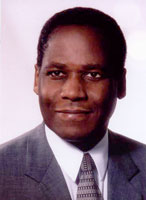 National Health Insurance also known as Universal Health
Insurance is designed to provide a comprehensive system of mandatory health
care coverage for all eligible individuals.
National Health Insurance also known as Universal Health
Insurance is designed to provide a comprehensive system of mandatory health
care coverage for all eligible individuals.
National Health Insurance has been implemented in most
developed and many developing countries. It has been endorsed by the World
Health Organization (WHO) as an equitable system to achieve quality health care
and improved health outcomes of populations.
Though the application of universal health insurance varies
widely, all
such jurisdictions embrace
the basic concept of the pooling of dedicated funds to provide health coverage
for the entire defined population regardless of age, preexisting illness or
financial means.
This goal is achieved by implementation of both preventative
health and treatment modalities, and improvements of health-care physical infrastructure
and staffing.
Funding is derived from mandatory salary contributions,
government contributions and external sources.
The current health-care system in the Bahamas is serviced by
both the
public sector
funded by the Public Treasury, and
the private sector which is “fee for
service”.
The Public Treasury, due to the sluggish growth of the
economy and systemic weaknesses in revenue generation and collection, is unable
to provide adequate funding for the growing demands placed on the public health-care
sector because of
population growth
(citizens, illegal migrants, foreign workers and visitors) and
rising health-care costs.
The National Prescription Drug Plan (2010) provides medications
for a small number of defined illnesses to eligible individuals and is
currently funded by the National Insurance Board. This plan is not considered
comprehensive.
The Catastrophic Health Plan proposed by the former
administration would provide health coverage for a small number of defined
illnesses to eligible individuals. This plan likewise is not comprehensive.
The proposed National Health Insurance plan would provide
comprehensive health care coverage to the entire population and would require a
broad base of funding to be sustainable.
Current economic realities indicate that broad based funding
is not achievable during this economic recession with the high unemployment
rate and high national debt.
The Bahamas cannot afford exacerbation of the national debt,
nor burden the working population and employers with more taxes during this
recession state.
Hence the Government is advised to exercise extreme caution
and delay the implementation of the proposed comprehensive national health
insurance plan until the macro-economy and fiscal conditions markedly improve.
“
Discretion
is the better part of valor”
